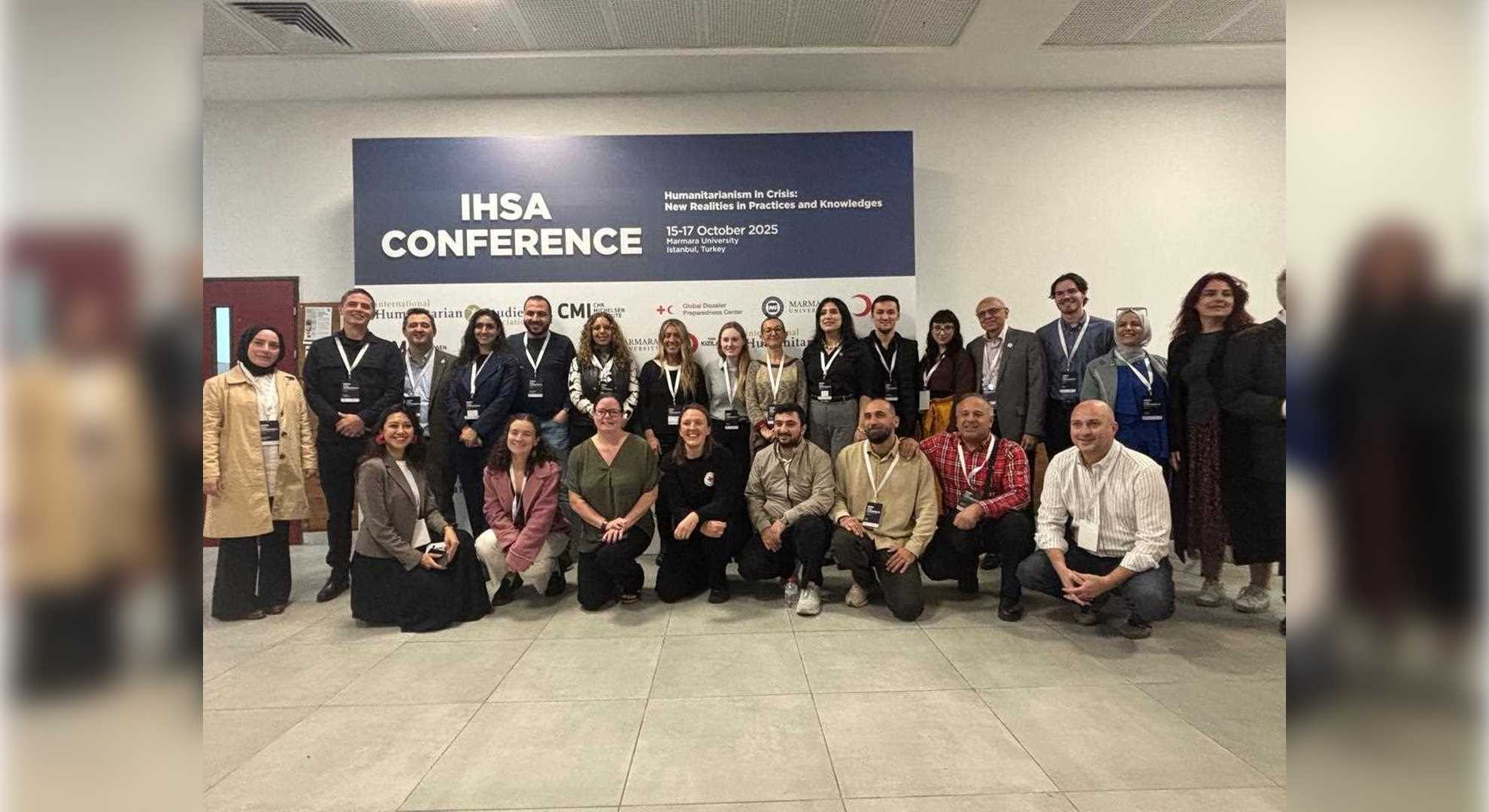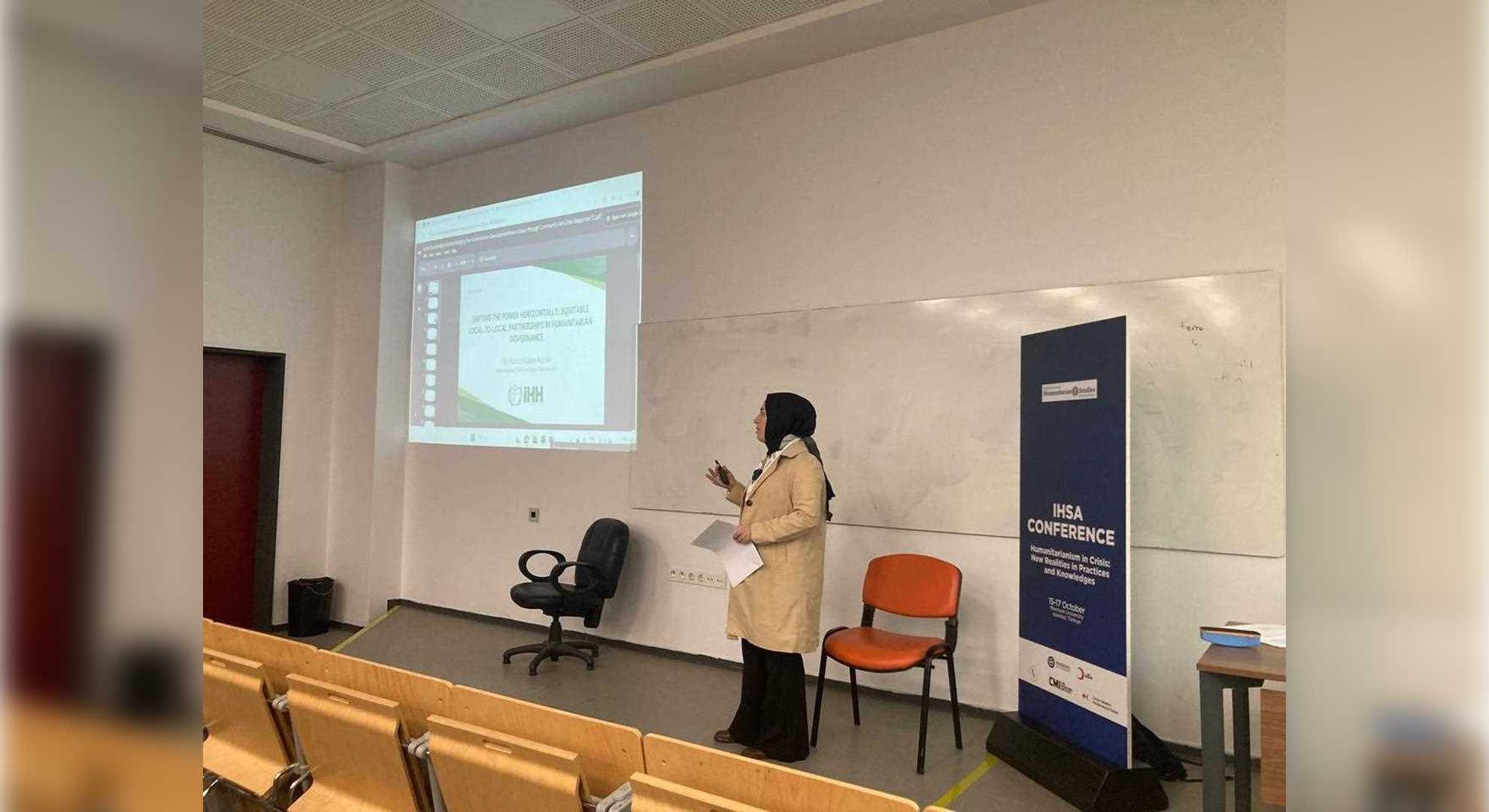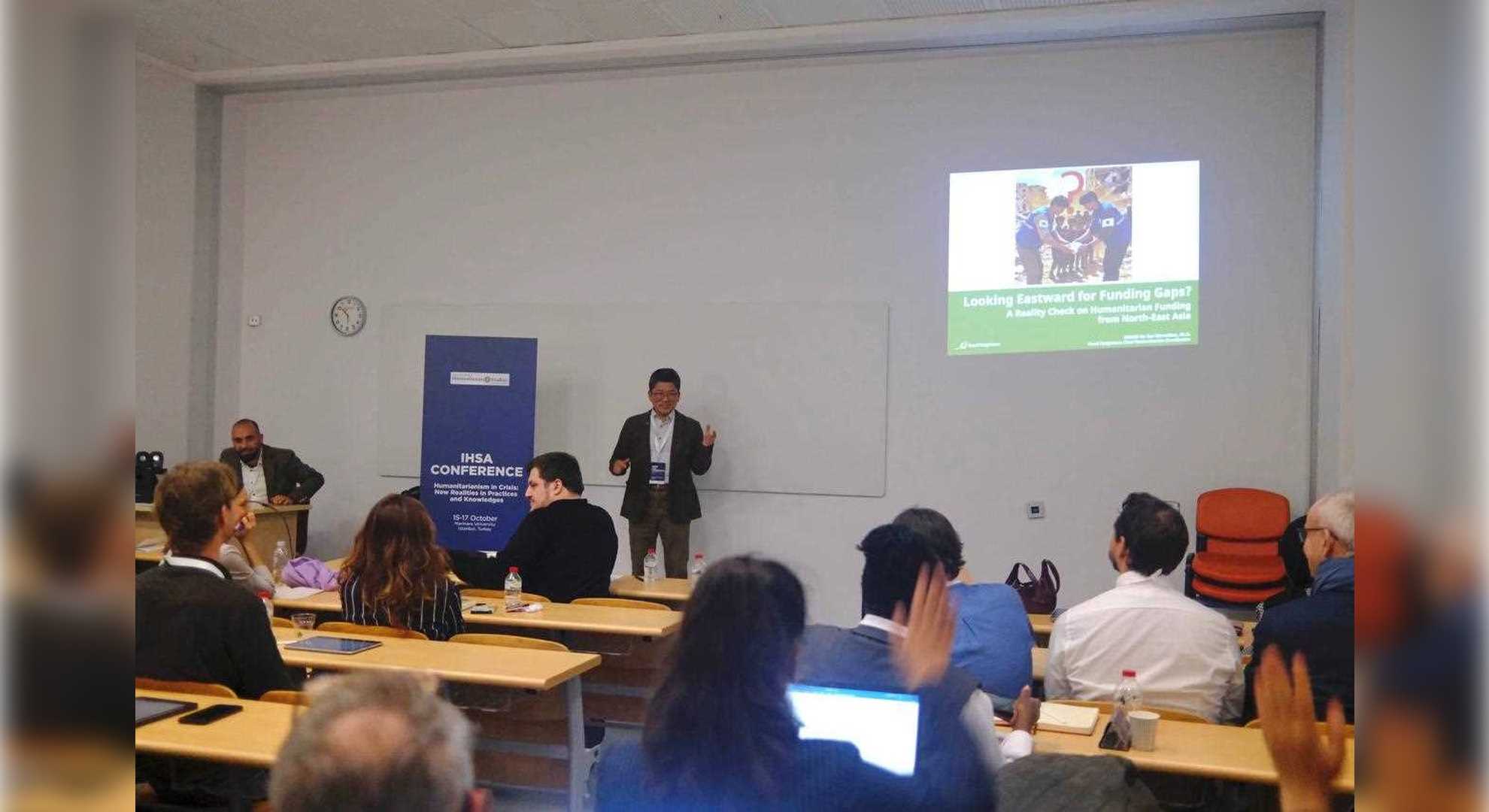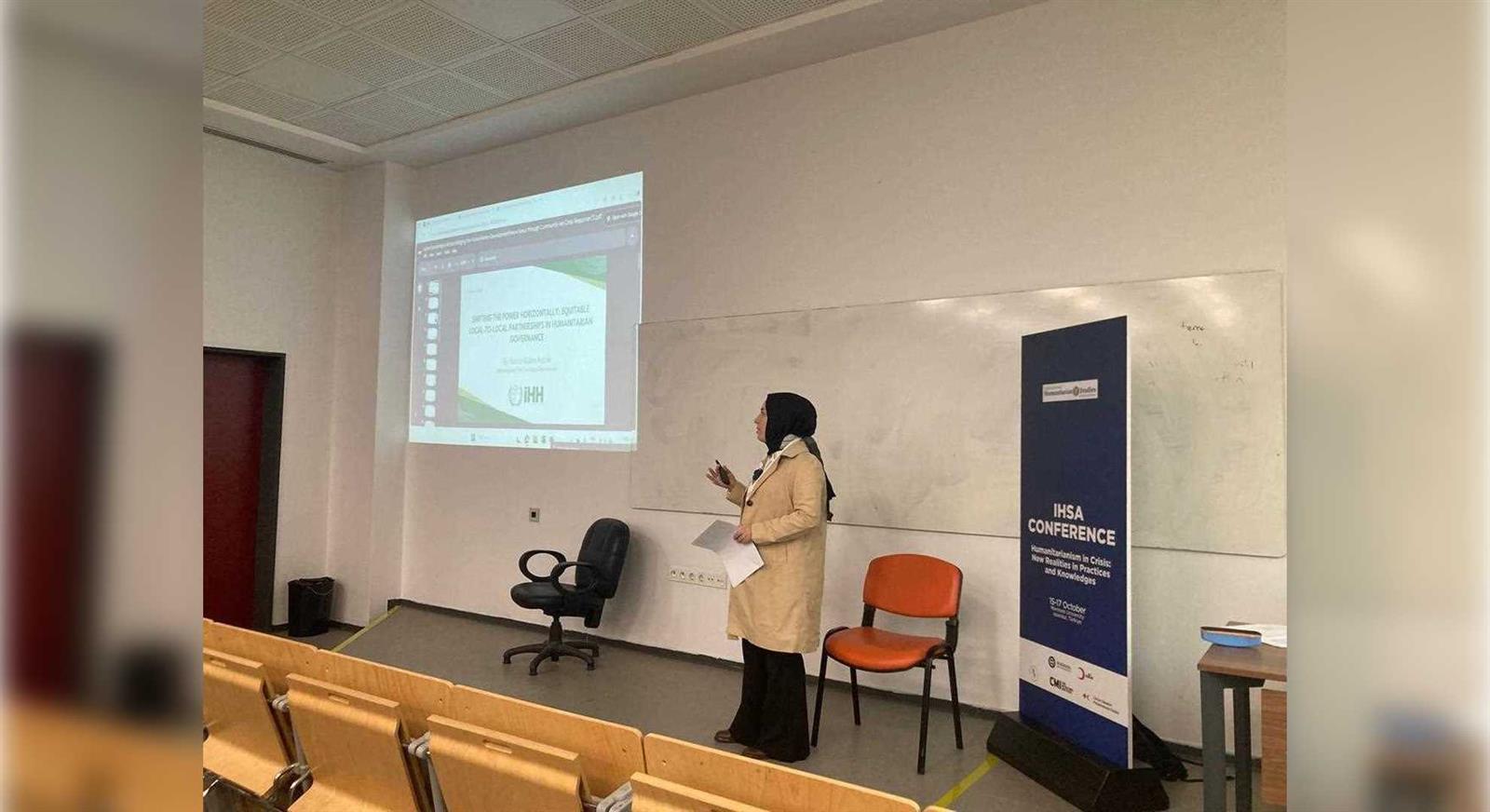
As part of the conference, IHH Humanitarian Relief Foundation organized two separate sessions. The first was a roundtable discussion titled “Is the Humanitarian Subject Shifting? Rethinking Southern Leadership in Humanitarian Aid.”
The roundtable was moderated by İrfan Tatlı from IHH’s International Partnerships Unit, while Hatice Kübra Koçak, Coordinator of International Partnerships Unit, took part as a speaker, sharing IHH’s experiences in this field. The session focused on the rising role of Global South actors within the humanitarian system and the importance of local leadership.

The second program organized by IHH was a panel discussion titled “Redrawing the Map: Rethinking Humanitarian Financing in Times of Structural Instability.” The panel was moderated by M. Talha Keskin, Director of International Relations Department. The session addressed the transformation of humanitarian financing models, the challenges faced by the current system, and discussions on alternative approaches to financing.
Hatice Kübra Koçak presented at the panel titled “‘Real’ Humanitarian Governance: Accountability, Advocacy, and Alternatives.” She shared perspectives on equitable partnerships and how these principles are reflected in IHH’s experience. Koçak also participated as an online speaker at the Norway leg of the conference, addressing the panel titled “Communities of Practice as Spaces of Solidarity, Resistance, and Power Shifts in Humanitarian Aid.” During her session, she reflected on how community-based NGOs succeed and struggle through both shared and diverse approaches, drawing on IHH’s collaborations across different countries.

IHSA Conference served as an important platform bringing together academics, researchers, civil society representatives, and international organizations working in the humanitarian field to exchange knowledge and experience. Through the sessions it organized and participation in other panels, IHH representatives had the opportunity to engage in dialogue with experts and practitioners, underlining the foundation’s commitment to contributing to knowledge production in the humanitarian field, bringing field experience into academic discussions, and fostering new collaborations.
